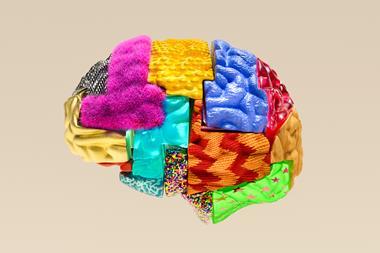When the conversation shifts from chemistry to culture, we need to talk about reasonable adjustments
One of the things I love most about going to events and conferences is the fleeting encounters you have with people who share your passion for chemistry. Enjoying the exchange of ideas and our common curiosity for chemistry is invigorating. However, when I attended the Royal Society of Chemistry’s MC17 conference in Edinburgh this year, things were a little different. Many of the interactions I had here were not about chemistry at all, but instead about its culture.
I’ve had similar conversations many times recently with younger scientists who are trying to find their way in a rather murky academic system. And it is a topic that’s particularly important for those who feel excluded by a system that doesn’t give them the support they need. For those of us with disabilities, a crucial part of feeling empowered to achieve and to give our best comes with discussing reasonable adjustments.
Mixing passion and pressure
At MC17, I had the privilege of sharing a panel with my peers Illaria Meazzini, Emma McCrea and Alison Hulme. We each spoke about disability inclusion from our different perspectives: Ilaria as senior programme Manager for I&D at the RSC, Emma as a PhD student, Alison as a senior academic and myself, working within the Science and Technology Facilities Council and across UK Research and Innovation (UKRI). I shared my own experience of being diagnosed with dyslexia during the final year of my undergraduate degree and my more recent diagnosis of ADHD, and gave my perspective from being chair of the UKRI Disability Matters Staff Network. We discussed whether we’ve got things right and asked if researchers feel supported in the way that best empowers and enables them to be truly innovative.
It’s not enough to have a team of diverse people – you have to unlock their potential
The fact is that scientists work in thought-provoking and specialist roles. And the same passion that drives us to persevere on a problem, or to share our enthusiasm with each other, can also lead to us carrying our work around with us. Taking your work home with you in this way can be exhausting, and the burden can be even greater for those of us from underprivileged or disadvantaged backgrounds. Whether its planning an experiment or attending a conference, there are often extra factors to consider. You may have to plan for adjustments you need during travel (whether you disclose them or not), or timings you have to adhere to, or just making sure you have space to regulate your emotions. The list goes on. The environment in which we work is just as important as the science that we do, and having more barriers increases the risk of burnout.
Making it personal
We all have a moral and ethical responsibility to contribute to a positive, inclusive and diverse research ecosystem. In fact, the UKRI Disability Matters Staff Network has a simple vision – ‘Maximising inclusion to drive diversity across UKRI’. That vision is grounded in those moral and ethical responsibilities, but it is also the means to create an environment in which the best ideas can lead to the most innovative and exciting solutions to global problems.
That’s because having a diverse group of voices around the table is the best way to foster true ideation, and leap out of the confines of groupthink that we often fall into. Moreover, there is no evidence that having a diverse team outweighs not having one. All the evidence indicates that the more diversity you have, and the better representation you have, the better work you do. But there is a catch: it’s not enough to have a team of diverse people – you also have to unlock their potential.
The essence of change comes in empathy, compassion and listening
A reasonable adjustment helps to do just that: meeting the needs of a single person to allow them to reach their potential. It can be the difference between someone sinking or swimming. They provide an essential complement to broader drives for accessible workplaces – where bulk adjustments help us all – by enabling something that is deeply personal to the individual. How these conversations are conducted is equally important, because asking for help is hard at the best of times, but to admit there are things you struggle with because of your disability makes you feel extremely vulnerable. Get it right, and you will build a relationship that is open and trusting, where both the employee and employer get the best out of each other.
Inclusivity comes by working together
I am often asked if there is a recipe for implementing changes across an organisation to make it more inclusive. And I am afraid that as I get older, I still can’t find one. To me, the essence of change comes in empathy, compassion, and listening to each other; we should learn to enjoy it when someone challenges conventions that we have held for a long time.
Ultimately, what is the impetus for change? To each of us, we may have a slightly different answer, but it is hard to argue with the fact that by creating a safe and inclusive workplace, as chemists, we have the ability to help solve global problems and drive even harder towards doing great science; but only if we all work together.














No comments yet